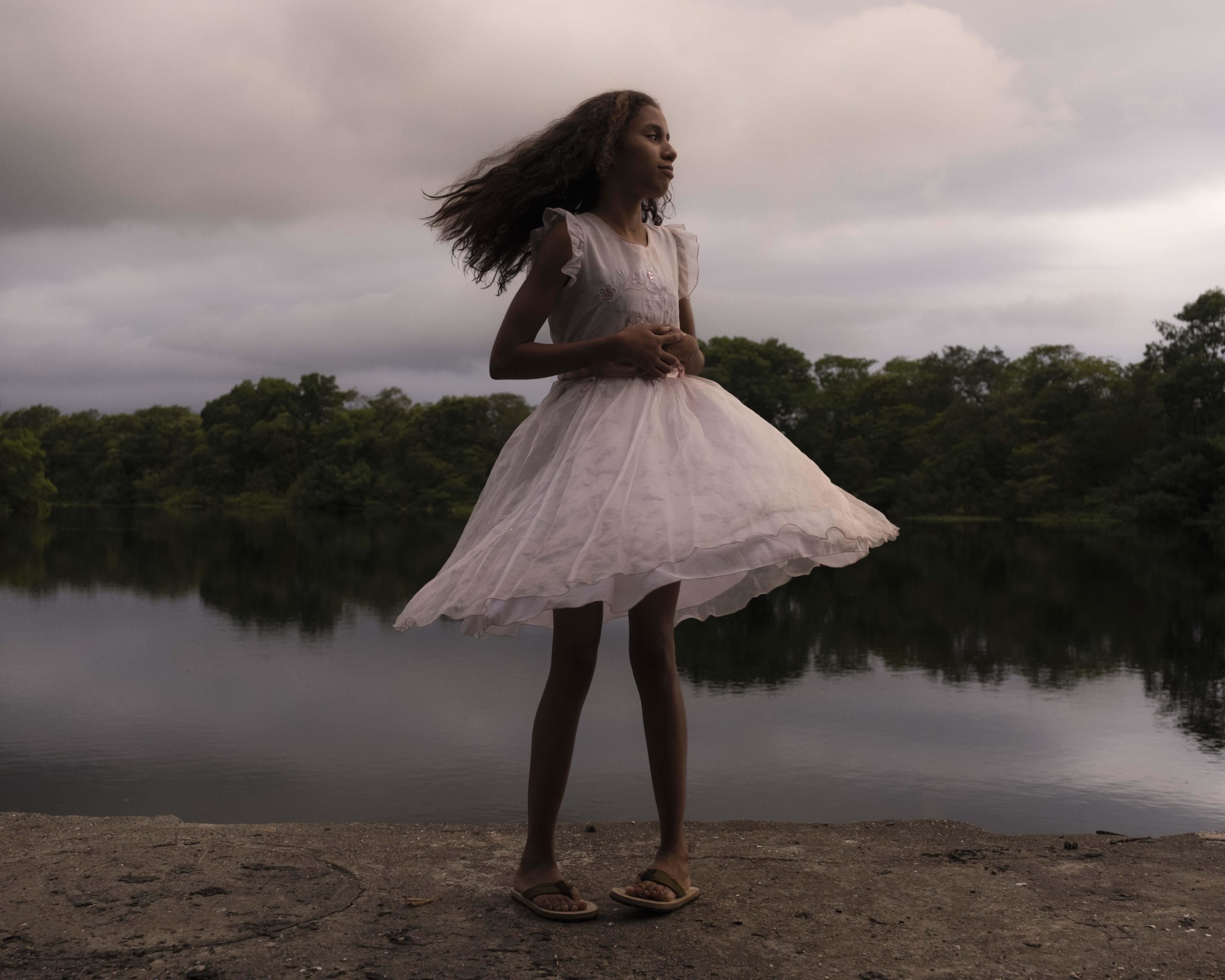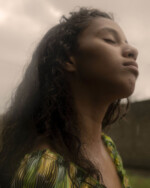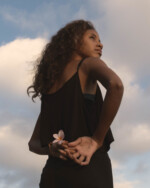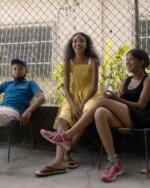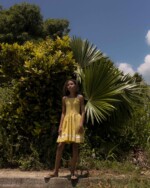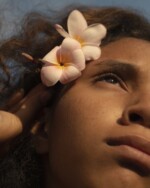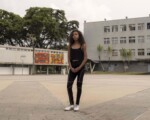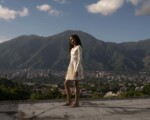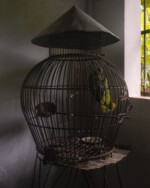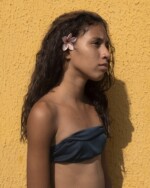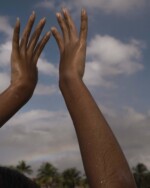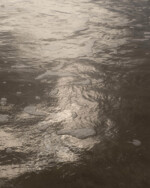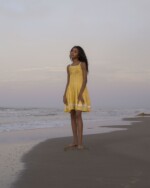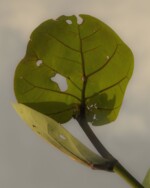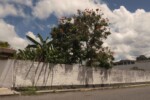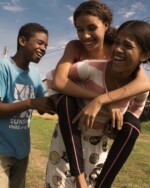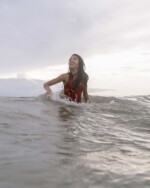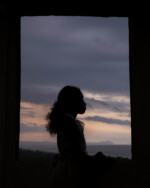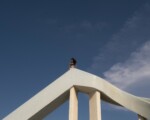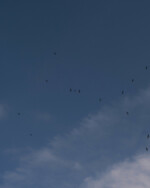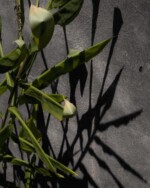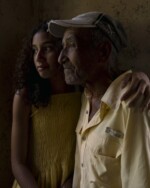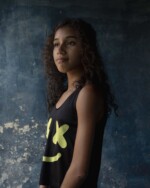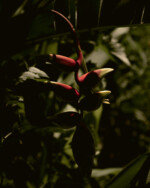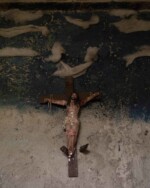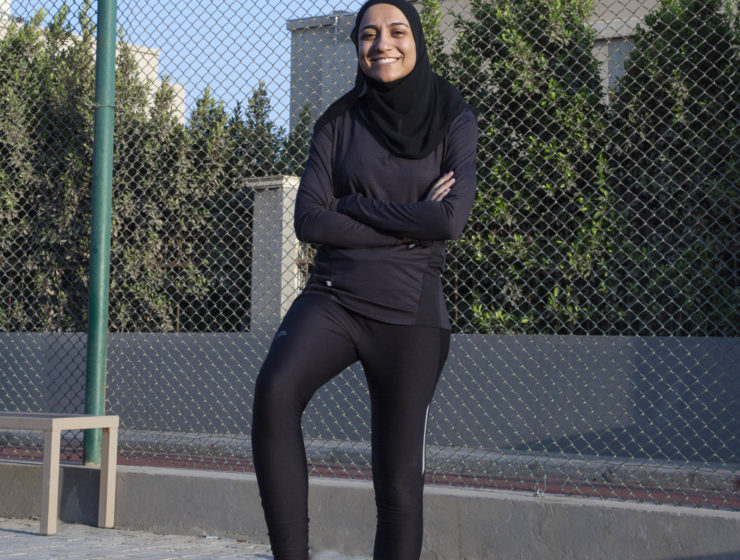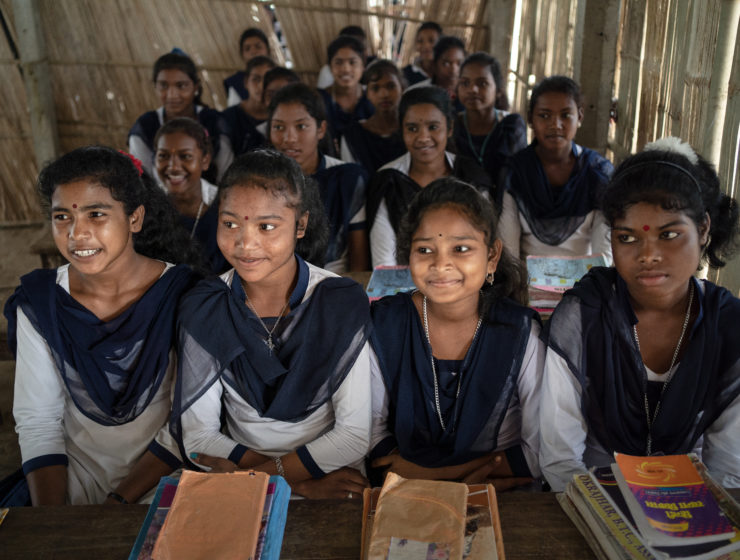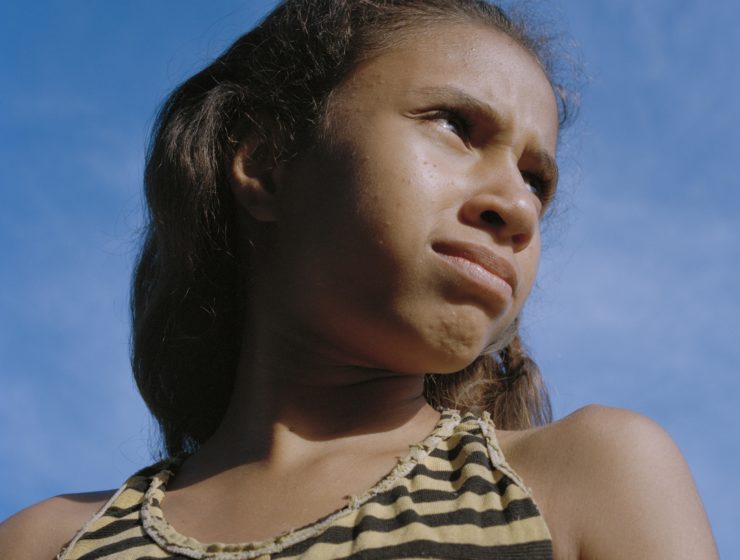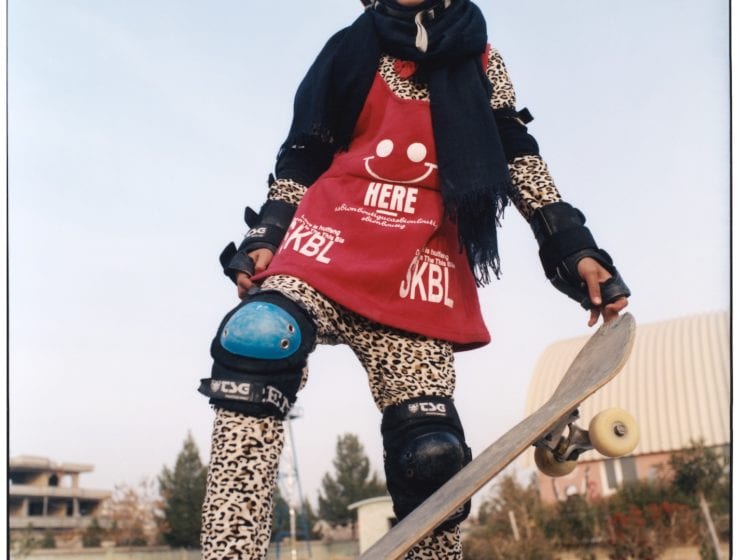The first new body of work commissioned by Malala Fund and 1854, Silvana Trevale’s enigmatic portrait of 16-year-old girl Carmen ruminates on the “beauty and complexity” of adolescence on the Venezuelan coast.
There are some instances when the drama resides not in the sharp focus of light, nor in the atmospheric depth of shadow, but in the penumbra: in the ‘almost’ shadow. This liminal space is where the mystique of twilight and the intangibility of dawn unfolds, where theatrics are restrained into complexity, where characters are afforded intricacy and nuance.
Here, in the enigmatic dusk, the dappled shade, lies the work of Caracas-born photographer Silvana Trevale. Her particular chiaroscuro finds form in the condition of adolescence – her typical subjects the young Venezuelans encountered on the country’s coastline, where the photographer spent much of her own childhood. Collectively, her images speak to the universal obscurity of these in-between years: teetering on the cusp of mature self-consciousness; youthful innocence tempered with the dawning of lived experience.
Trevale’s latest project is the first to be selected in the Against All Odds series from 1854 in collaboration with Malala Fund: the global advocacy programme for girls’ education. Working to support educators and activists in eight countries worldwide – including Afghanistan, Nigeria and Brazil – the Fund’s straightforward mission is “to ensure every girl can go to school”. With Trevale awarded a £2,000 grant, the project centres around 16-year-old Carmen, an aspiring medical professional, photographed in her hometown, Tacarigua de Mamporal. Testament to Trevale and Carmen’s many years of friendship, the final body of work is steeped in a warmth, honesty and playfulness – from images of Carmen enveloped by the foaming waves, to the tender embrace of friends. “Her eyes are so bright all the time”, Trevale describes.
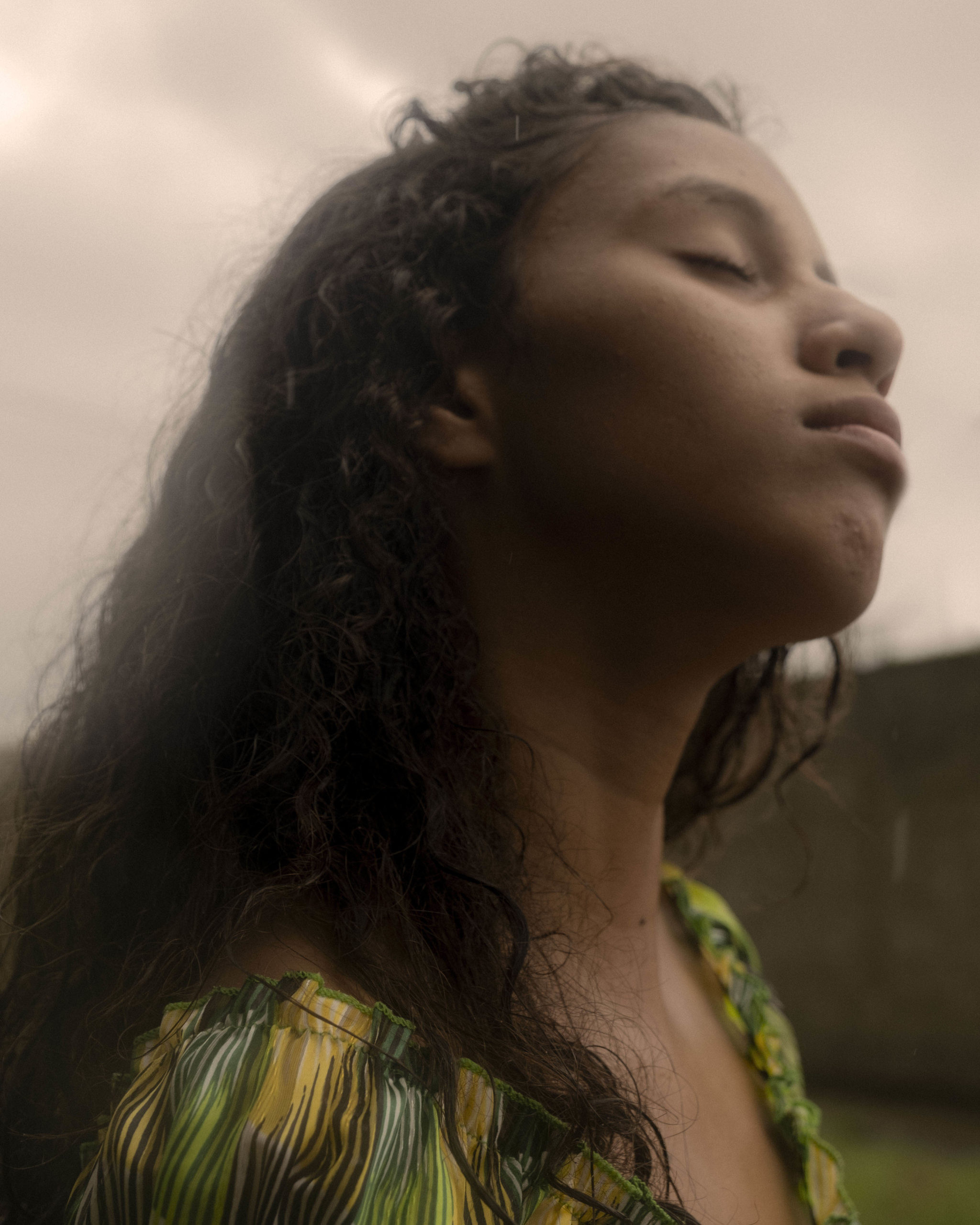
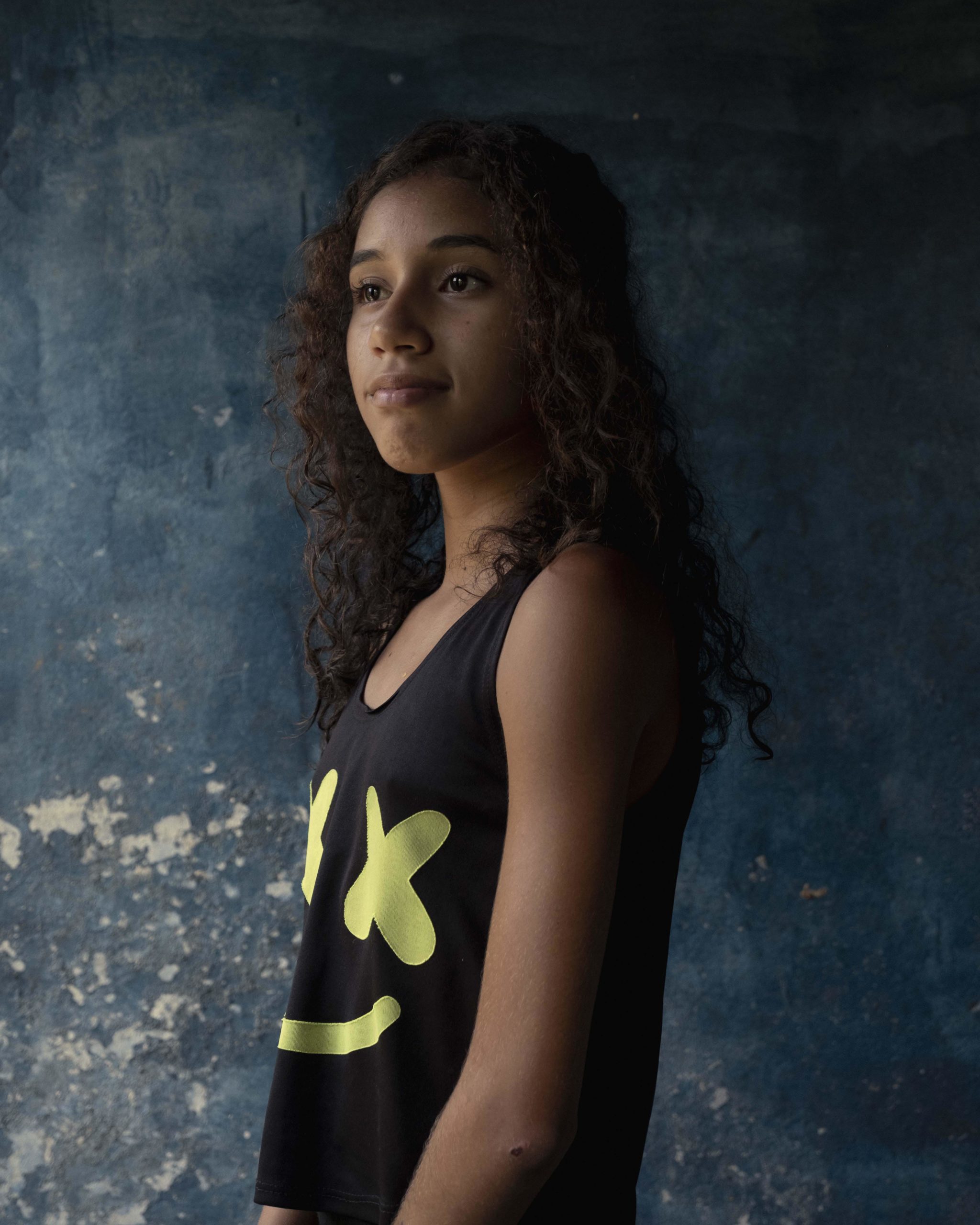
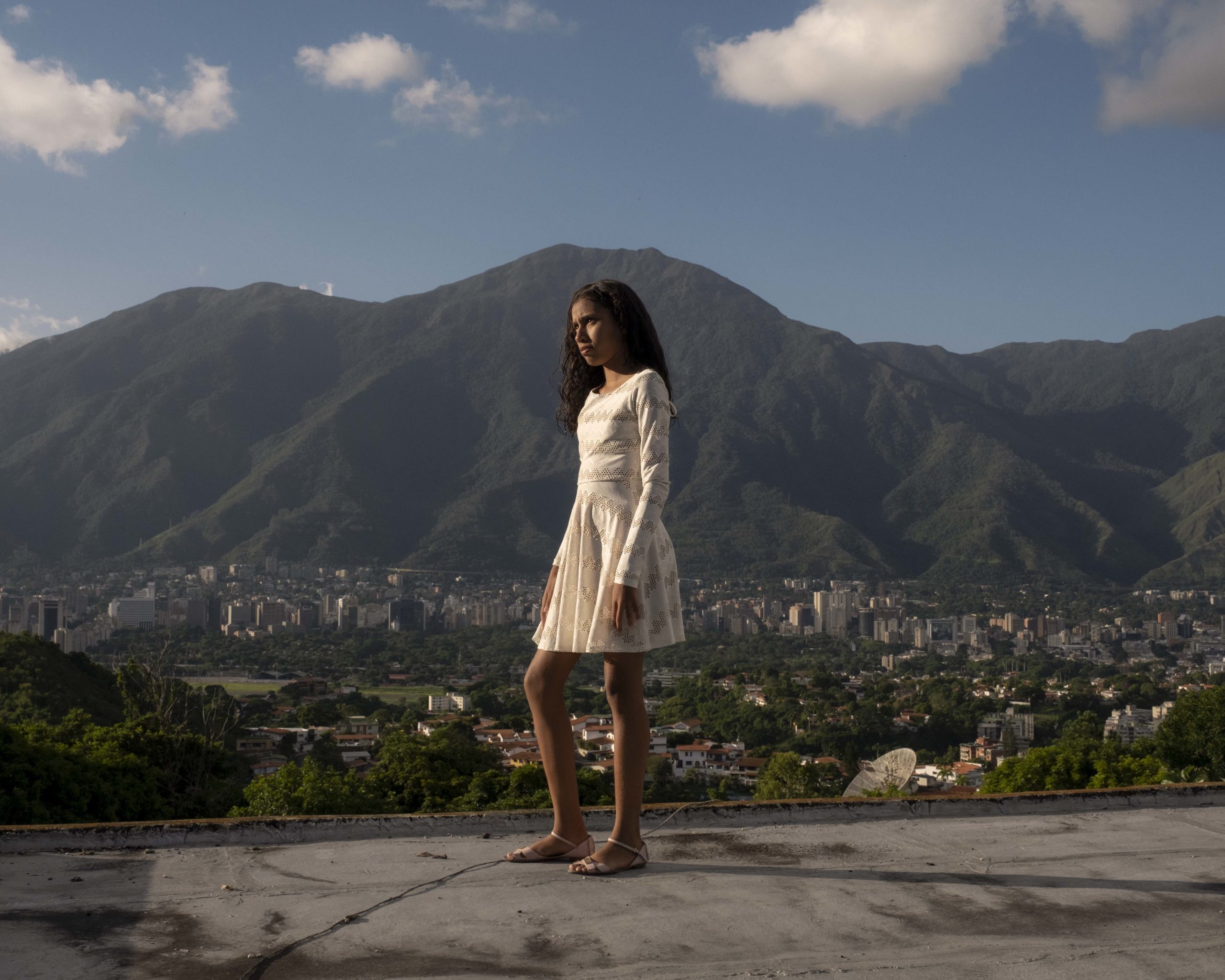
“all my work comes from love for my country”
– Silvana Trevale
Yet befitting the series’ ethos and the wider commitment of Malala Fund – the project is also coloured by the fraught socio-political circumstances of its backdrop. One of eleven children to a working-class family, it was Carmen’s mother who inspired her ambitions to work in the medical sphere, and Carmen in turn who hopes that through this “important” work, “it will be different… for my children”. Carmen’s reality is one of daily street violence, weekly power cuts, limited access to healthcare (including methods of contraception), and scarce resources to travel beyond her hometown – not to mention the unlikelihood of graduating school into paid work. In one image, Carmen stands atop a roof, the unyielding metropolis of Caracas like a mirage behind. “It is impossible for her to go there” Trevale states. Trevale also recalls the difficulty of contacting Carmen from abroad for the project – the only option via her father’s mobile, often without phone signal bar a few hours each day. During the pandemic, Carmen’s only access to schooling was on a friend’s computer – a device which was reliable to fail altogether, or be sabotaged by power-cuts. Academic resources in the form of books or the internet are limited, and many students leave school at an early age owing to this lack of stability, Carmen explains. When Trevale visited her, “She didn’t even have a pencil”. And what’s more, Carmen reveals, “Unfortunately I am not the only one who goes through this” – her situation is “the reality of many girls in Venezuela”, notes Trevale.
Trevale’s own sense of the “harsh” truth of life in Tacarigua de Mamporal is a subtle undercurrent in the work. Trevale’s determination not to “romanticise the situation” meant she approached the project “with hope – all my work comes from love for my country”. Here, hope is in the form of soaring aquamarine skies, hands gazes reaching defiantly towards the sky, and in one liberating image: a portrait of Carmen, jubilant on the crest of a wave. The sea is “a natural element… that we both share”, Trevale reveals – her connection to the water profound and unshakeable. (“I’m technically a fish”, she jokes). The pandemic year spent in London left Trevale bereft for the ocean, especially being unable to travel home to Venezuela’s coast to complete a project on her grandmother’s history. Once lockdown broke, Trevale took herself to Brighton, for a long overdue glimpse of the sea. “It was like going home”, she describes.
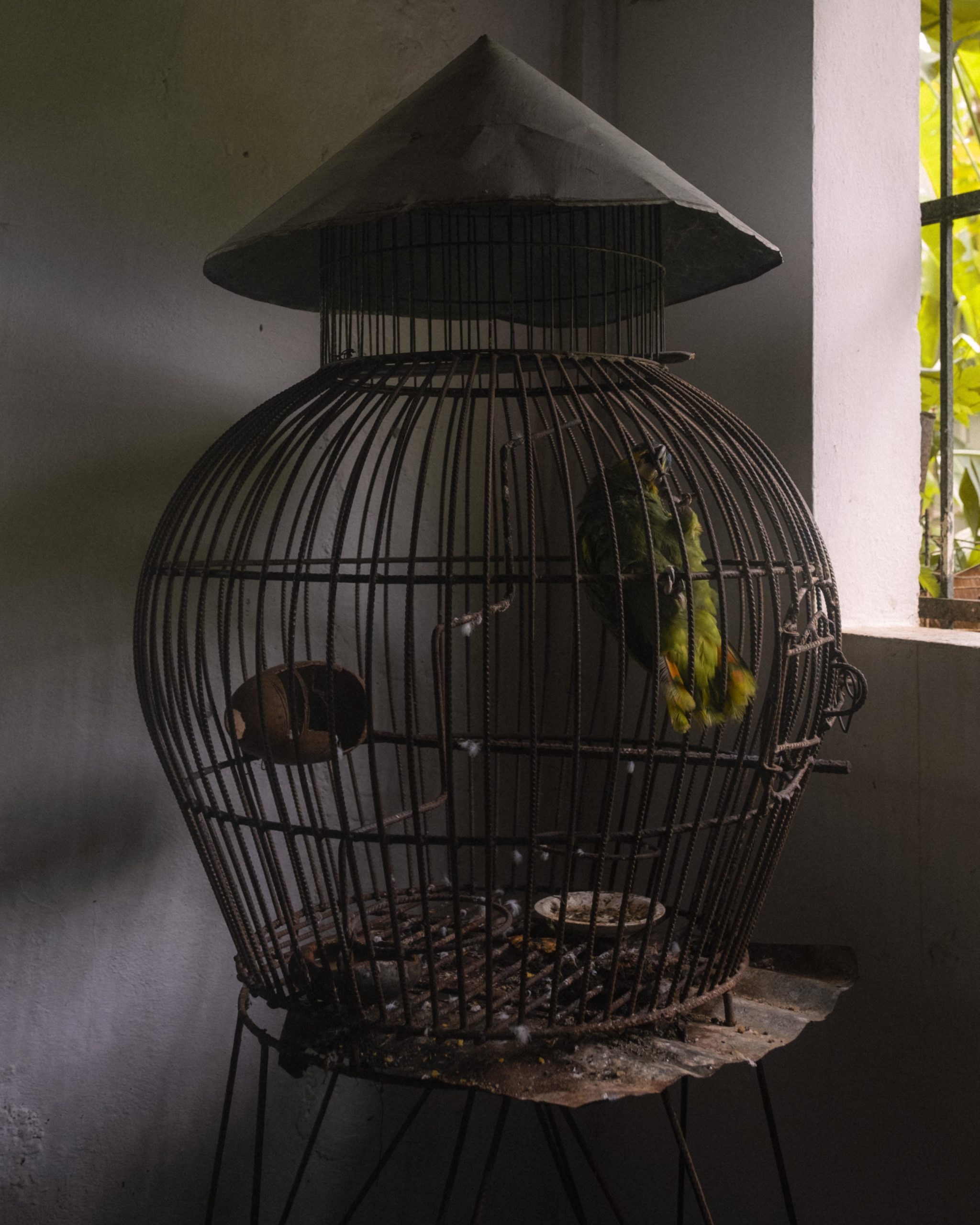
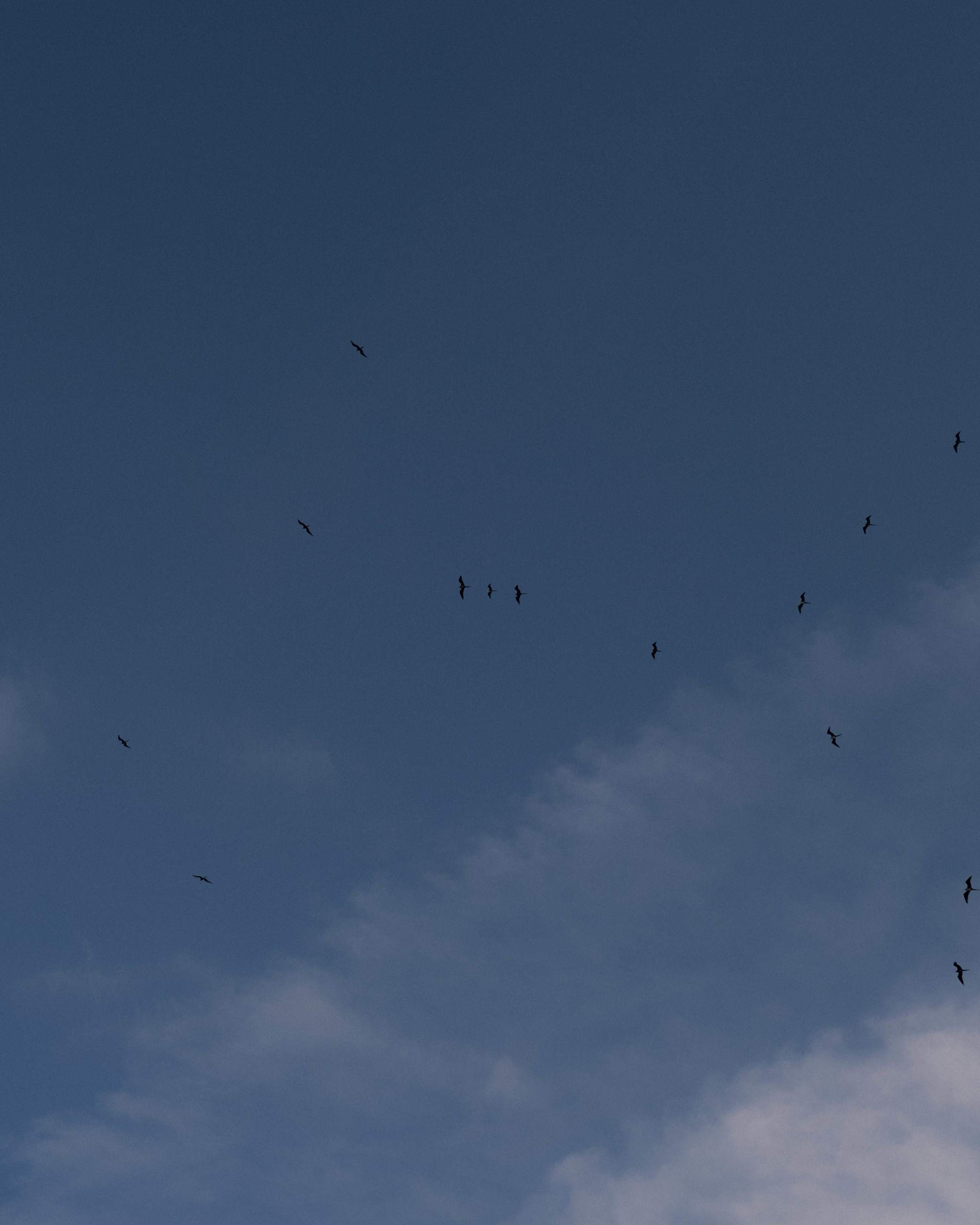
Elsewhere in the series, images are more charged, poignant, enigmatic. In the dim light of an interior, we encounter Carmen and her elderly father, the picture betraying a dignified optimism which reflects Carmen’s own philosophy: “I will always be positive and that is important for life, even if it is not easy”. The resolve in Trevale’s portraits of Carmen testifies not only to the pair’s natural rapport, but her young subject’s unwavering resilience in the face of an uncertain future. “It teaches me that you can’t stop. Because if you stop, what do you achieve?”
Then, there are the in-between pictures, proffering the series a lilting rhythm not incompatible with a book form. Trevale has long felt at home with this “gentler, softer” way of presentation – for the space and juxtapositions it affords combinations of images. Between incident and reflection, these ‘in-between’ images appear as snatched still lives, characterised by pattern and shadow: the zigzag of a birds of paradise plant, or a matrix of power lines – all in the grasp of an emotionless midday sun. “I always try to shoot early morning and late afternoon”, Trevale notes, “but in Venezuela it’s hard to get nice light…it’s really dangerous after 4pm – there is no security”. This fact – preventing Trevale from photographing at either end of the day for fear of danger on the street – meant she had to “adapt”, shooting part of the series in a secured apartment location, the Isla da Oro. For Carmen, who rarely explores outside of the nearby Tacarigua River and her local church, this experience amounted to a joyous “vacation”. Her unbidden relief is captured in one climatic image, lying horizontal in the water, silver droplets on her forehead. The image’s exposure is notched right down – light registering on its surface as dense shadow – a distillation of its held emotion. For Trevale, there is no better summation of her practice overall: the presence of water, the “filmic” light, and that intangible “transition state” of adolescence.
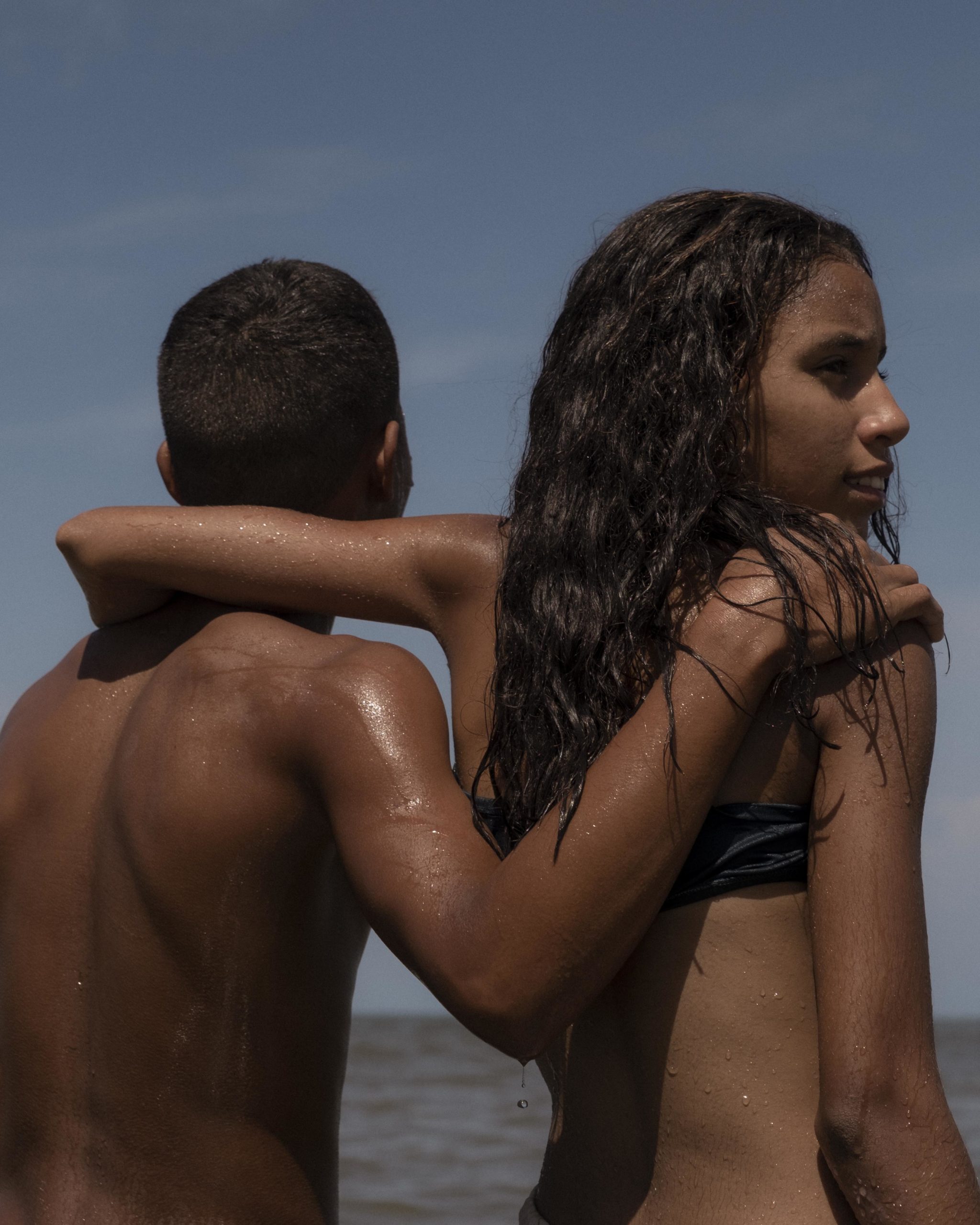
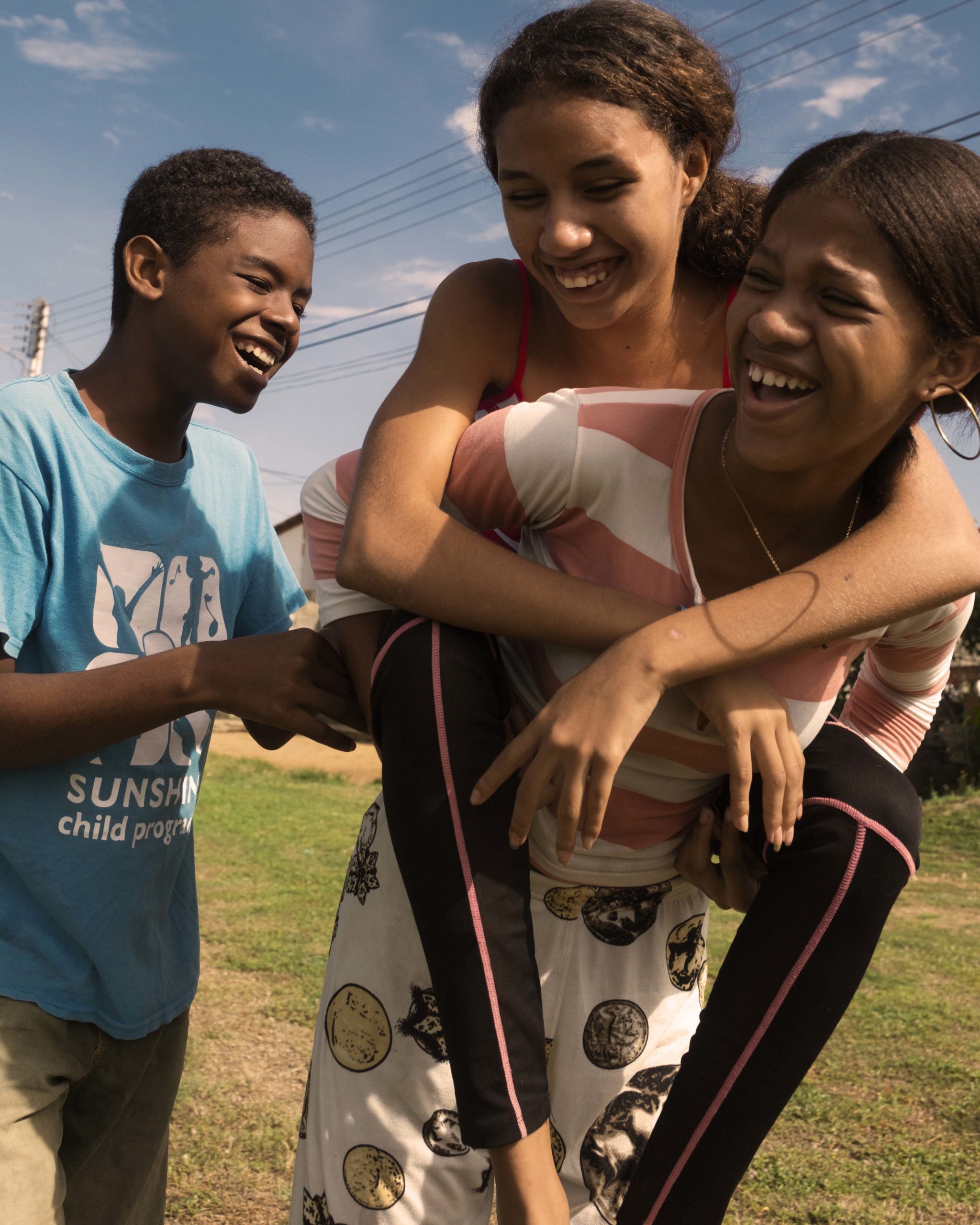
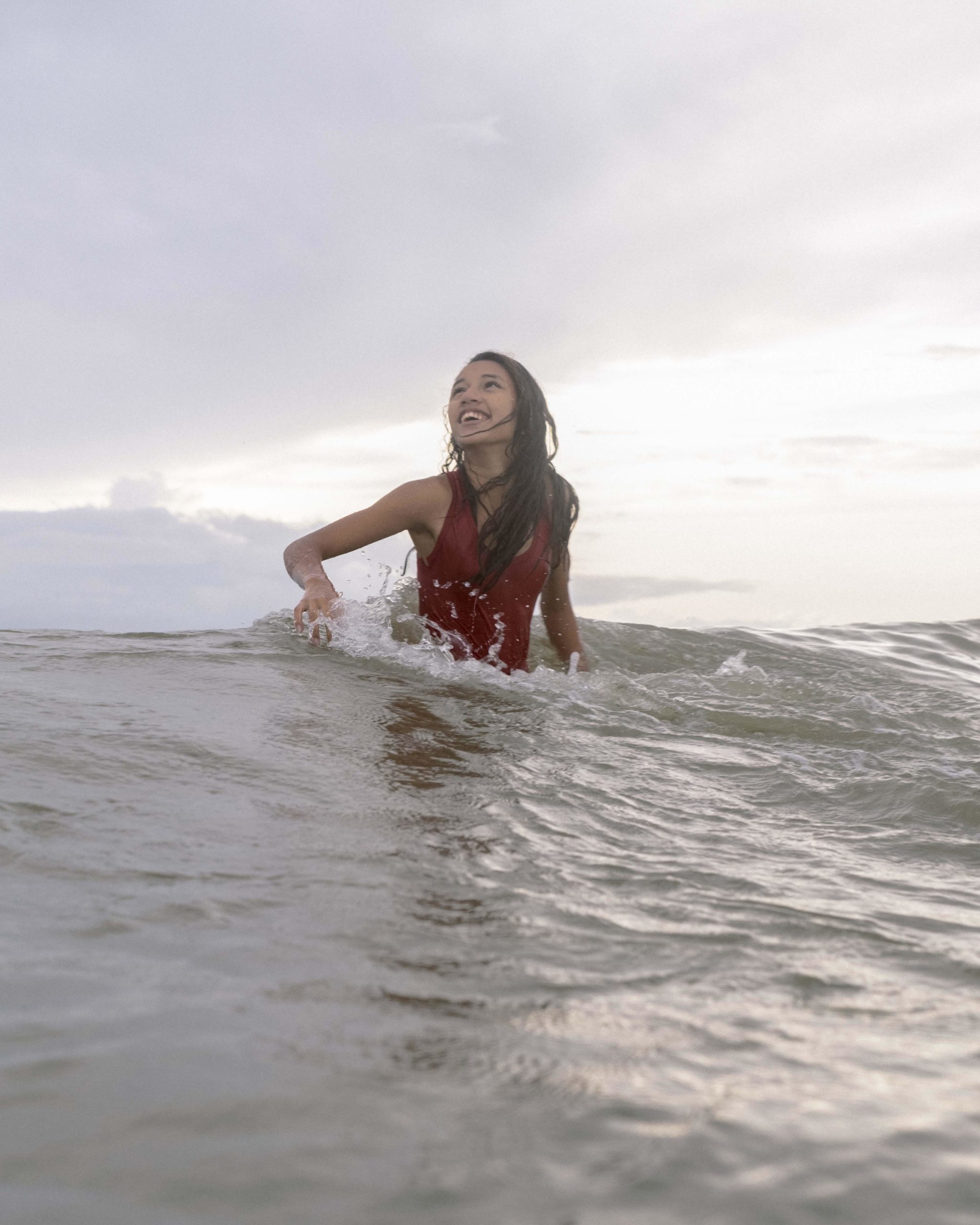
“I will always be positive and that is important for life, even if it is not easy”
– Carmen Reyes
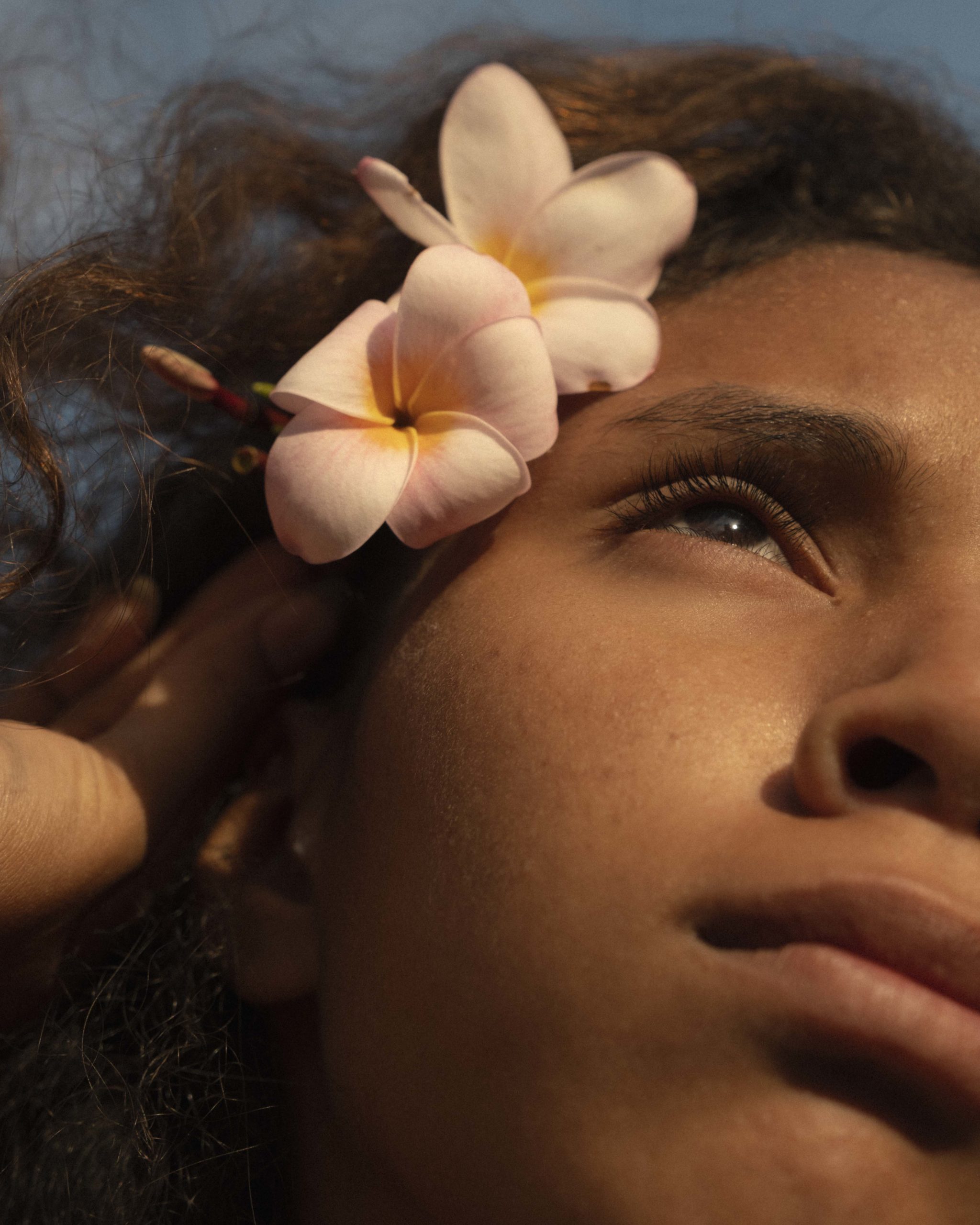
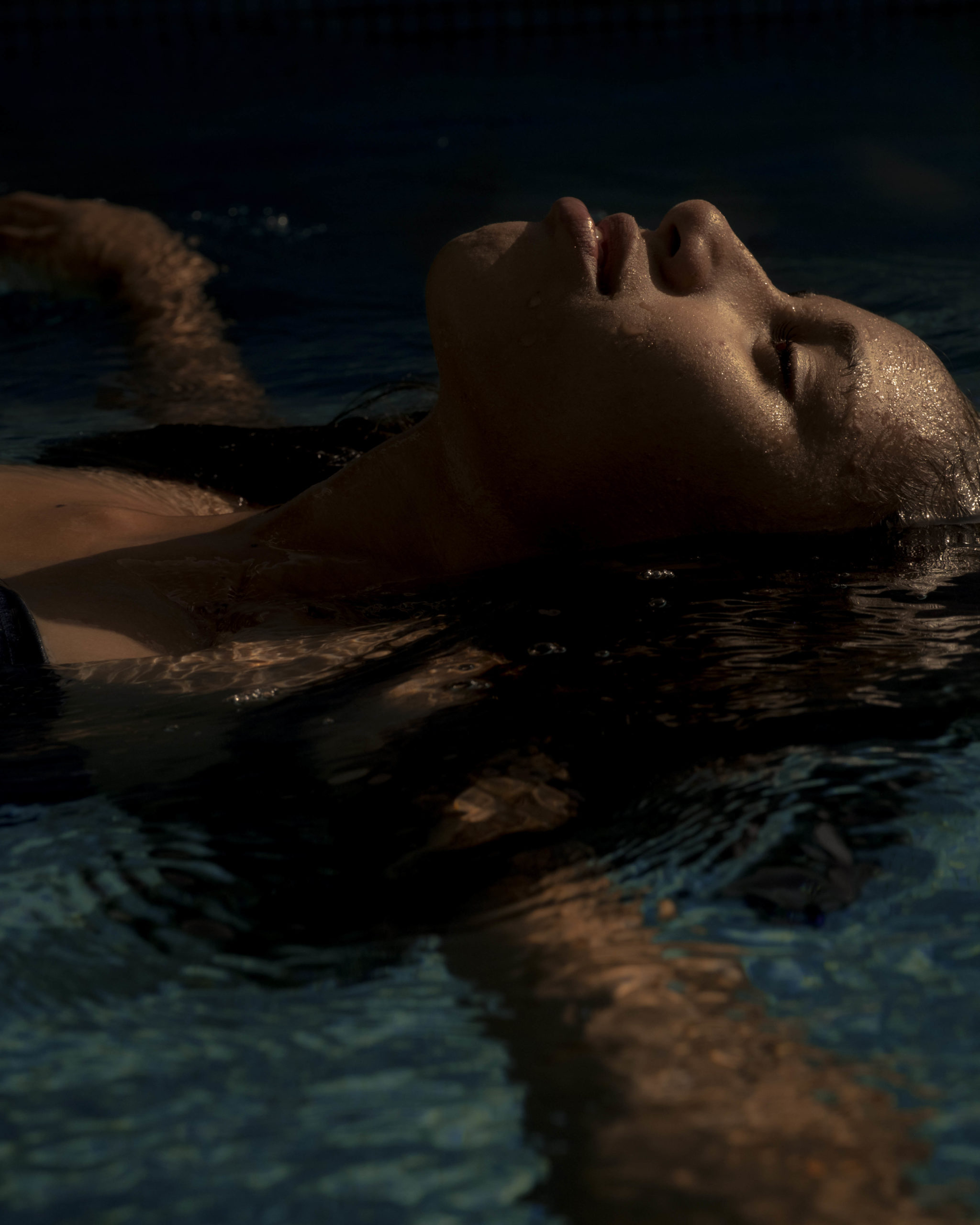
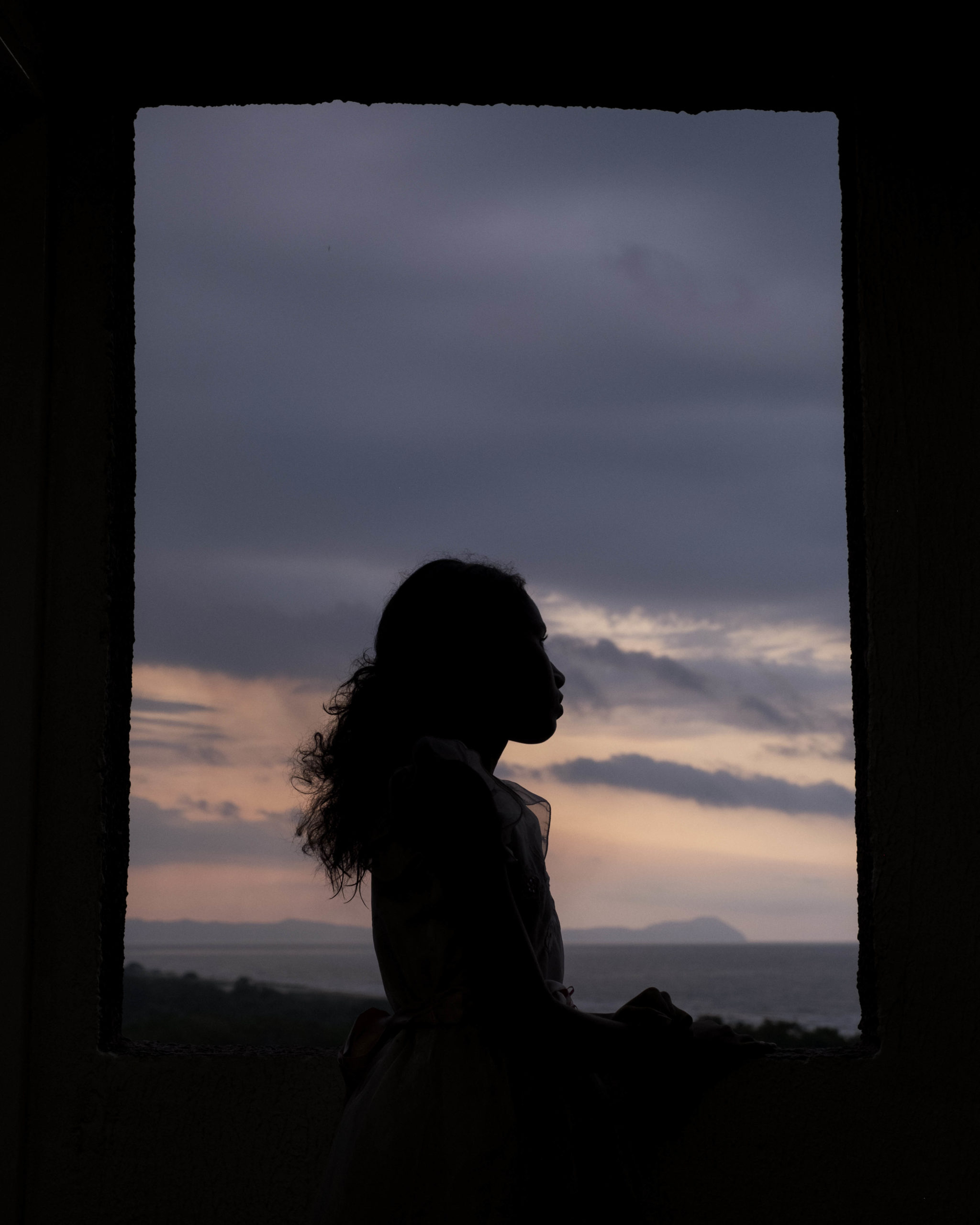
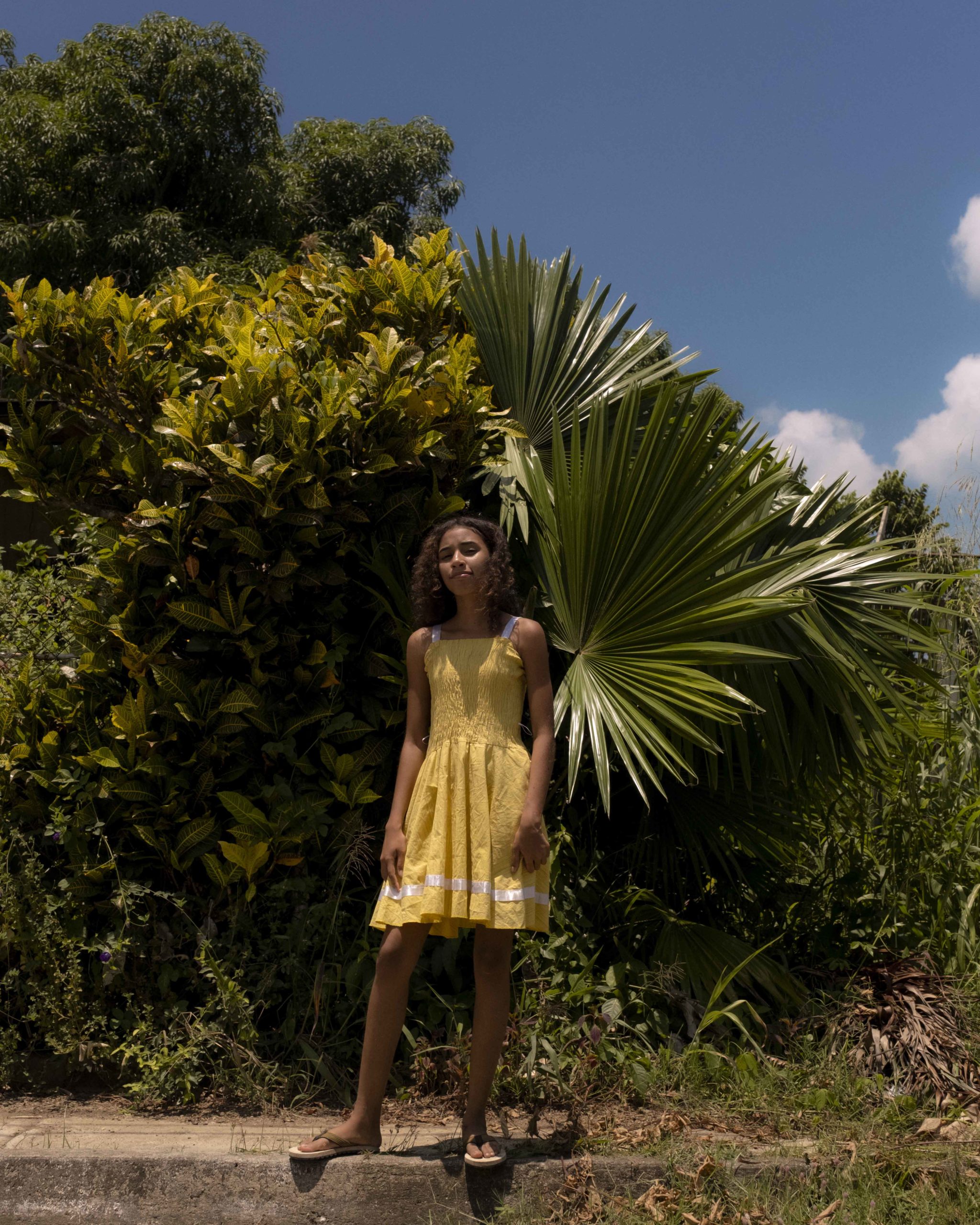
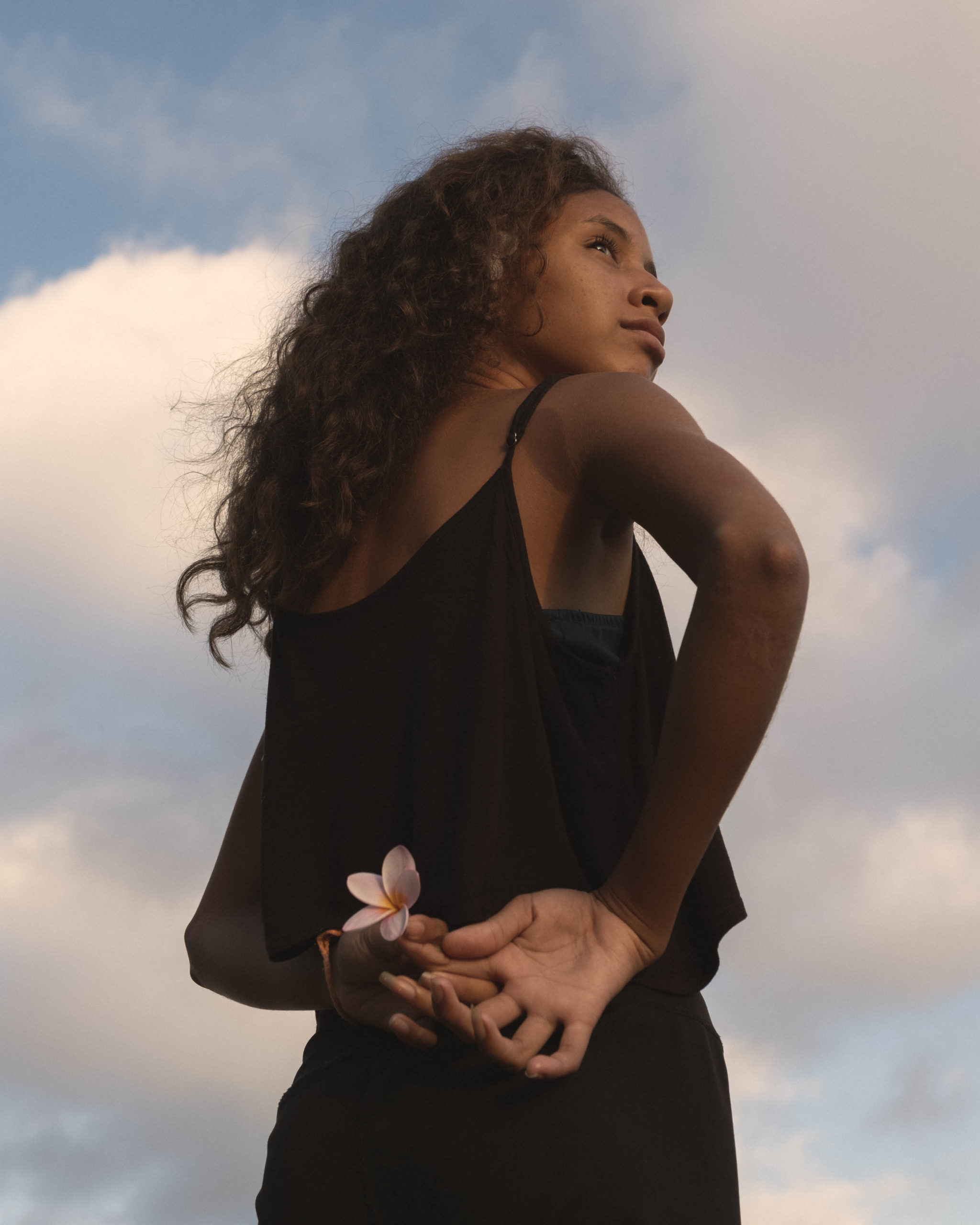
Trevale’s deft handling of the project’s delicate premise owes something to her sensitivity as an image-maker, but also to her distinctive hybridisation of documentary, portraiture, and fashion photography. “One of the first things we did was look at Carmen’s clothes”, Trevale describes. Deliberate styling choices offer subtle nods to different facets of Carmen’s shifting identity – from her white communion dress to all-black “city” attire – presenting her as “the girl she wants to be”, Trevale says. For the photographer, an affinity for fashion is quite aside from any commercial instincts. Simply, “I think fashion can add more to the story”. It is “a way to say goodbye to that little girl that’s not going to be there anymore”.
From saturated skies to overcast streetscapes, quotidian still lives to virtuoso portraits, Trevale’s photographic investigation is truly her own. Whilst her usual process is medium format, here, the “versatility” of a digital process allowed her to respond to fleeting, “happy” moments with Carmen: “the freedom to capture movement”. With its candid emotion and restless energy, the resulting body of work is quite distinct from the stillness which defines previous projects. Trevale’s efforts to retain a semblance of her analogue practice meant trying to “reduce [the digital process down] as much as possible”, so as not to become “overwhelmed” by the number of images. It is this control which threads through Trevale’s oeuvre – a stance she describes as finding “energy with someone”, and of acting vigil to “the spark” or “the glitch” when the moment of the photograph ultimately arrives. “My star sign is libra”, Trevale divulges – “when I feel something, it happens”.
Trevale’s instinct pays dividends, yielding an intimate portrait of her subject and the fragility of her setting. ‘Against All Odds’ may present the narrative of one individual, but the project advocates far beyond its own borders, calling attention to (what the Malala Fund articulates as) “so many of our world’s most pressing problems” – but from the critical perspective of a young woman. At once heart-breaking and hopeful, nostalgic and forward-looking, the work evinces the potent union of one individual’s artistic vision and another’s life experience. Or in the words of its maker: the encapsulation of a “beautiful but complex experience”.
The Against All Odds commission was a collaboration between Studio 1854 and Malala Fund. Want to work with major brands and NGOs on compelling, cause-conscious campaigns? View our current commission opportunities.
Find out more about Malala Fund here

